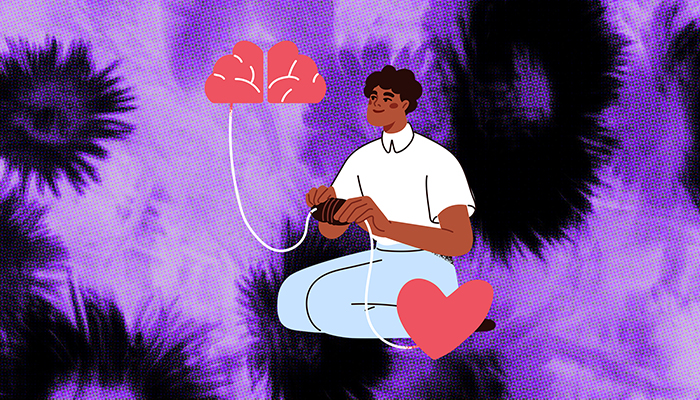Black History Month is meant to be a time to celebrate the successes, achievements, and incredible legacies of Black people who have come before us. Black history is American history and should be taught and recognized as such. However, these days, in the harsh realities that Black communities face, a month dedicated to awareness of the unsung heroes of the past leaves more to be desired. With the disproportionate effects of COVID-19, skyrocketing unemployment rates, and ceaseless violence and brutality against Black people at the hands of law enforcement and the news cycle, to say that Black people are living in an ongoing state of emergency is nothing short of an understatement.
Awareness of Black people’s historical contributions doesn’t seem as important as the actions that white people take to combat white supremacy and show up for Black liberation. Black queer and trans people are especially exhausted when it comes to “allyship”, “awareness”, and other buzzwords that don’t do much to improve the actual lived conditions that Black LGBTQ+ are facing everyday. These compounded feelings of racial trauma may cause feelings of dysphoria, depression, and anger. Here are some strategies that you can use during Black History Month to observe the holiday while dealing with the effects of racial trauma and holding space for your mental health through it all.
1. Protect your energy & rest
One of the most influential actions you can do for your mental health is to rest. In the age of capitalism and mass productivity, we often don’t get the opportunity to rest, and when we do, it can be hard to enjoy it . It can be hard for Black folks to take the pressure off. It’s easy to feel weighed down and stressed out, when you have to work twice as hard to get half as far. Under these conditions, rest can feel impossible and mistakes can feel fatal (even when they’re not).The Nap Ministry is a project started in 2016 by poet and daydreamer Tricia Hersey that “examines the liberating power of naps.” Tricia reframes the concept of rest as a liberating tool that takes courage to cultivate in the current grind culture that exists today. Tricia encapsulates the weight of this grind culture of the Black communities perfectly on Twitter, when she tweets, “My heart breaks knowing that there are so many Black [women] who don’t think they deserve to rest and feel guilt when they actually rest.” If you ever needed permission to rest, this is it
2. Stay off socials or limit your engagement
Social media has the power to connect us, but it can also feel deeply empty and hollow when not backed by meaningful and consistent action. Do yourself a favor and stay off your socials this month, or reduce your time on the scroll. You can set digital boundaries with what types of information you are exposed to. It can be stressful knowing that each time we open our phone, we might be bombarded with posts or content that is triggering, re-traumatizing, or just plain exhausting. . This is an opportunity to be mindful of what types of conversations you are available for and what digital detox practices you might choose to cultivate to keep your mind clear and your heart strong. Don’t waste your energy reacting or having to bear witness to the ways that white folks are and aren’t showing up for you this month. Mute those stories, hit that unfollow button, do whatever you need to limit your engagement with all that white noise.
3. Surround yourself with Black community
This month it’s especially important to be intentional about who you surround yourself with and what types of interactions or activities make up your day. Where you can, try and make intentional space to connect and celebrate with the other Black folks in your life. Find community and take a moment to relax, laugh, and eat some good food together. If this isn’t possible for you, spend some quality time with your partner or Facetime your bestie and just take a moment to enjoy each other. Reconnect with the pleasures and the blessings of being Black and being in community, and share space with other people where you can as you form a daily commitment to healing and liberation.
4. Reconnect with your body through meditation or movement
This month, you may be feeling the collective effects of racial trauma more than ever. When rest and relaxation feels inaccessible—(due to busy schedules, mental health challenges, or the never-ending pandemic) it may feel helpful to explore ways to be present in your body. The effects of racial trauma may get stored in our bodies and may reveal itself through physical and emotional tension. It might be useful to develop a somatic approach to relieve these symptoms. In times of stress, finding ways to be grounded or present in your body can help you regulate your feelings. The Nap Ministry reminds us that, “Not knowing how to do something as natural as slowing down or resting shows how deeply disconnected from our bodies we are. The brainwashing of grind culture has people unsure of how to inhabit their own bodies. There is deep Spiritual and Somatic unraveling to be done.” Even just setting aside 15 minutes a day for a gentle practice such meditation or yoga can help you regulate and come back to yourself.
5. Focus on the beauty and joy of being Black
Surround yourself with stories of Black excellence, Black resistance, Black rebellion and Black joy. Make space to dream collectively about Black futures— what you want for yourself and for your community. Show people what is possible, what is beautiful about being Black, be your own living legend, and most of all celebrate yourself for making it this far.

If you are experiencing the mental, emotional, and physical impacts of racial trauma, please check out these further resources and consider getting support.
__
FOLX Health is the first digital healthcare company designed by and for the LGBTQIA+ community. Our services include virtual primary care, gender-affirming hormone therapy including estrogen and testosterone (HRT), mental health care, sexual and reproductive health care, preventive care, and fertility consultations. FOLX memberships give you access to LGBTQIA+ expert clinicians, peer support, thousands of LGBTQIA+ resources, and more. Whether you’re lesbian, gay, bisexual, transgender, queer, gender non-conforming, or nonbinary, you can find LGBTQIA+-specialized health care that helps you meet your wellness goals. FOLX Health is health care that's queer all year. Get all the benefits of becoming a FOLX member and sign up today!



